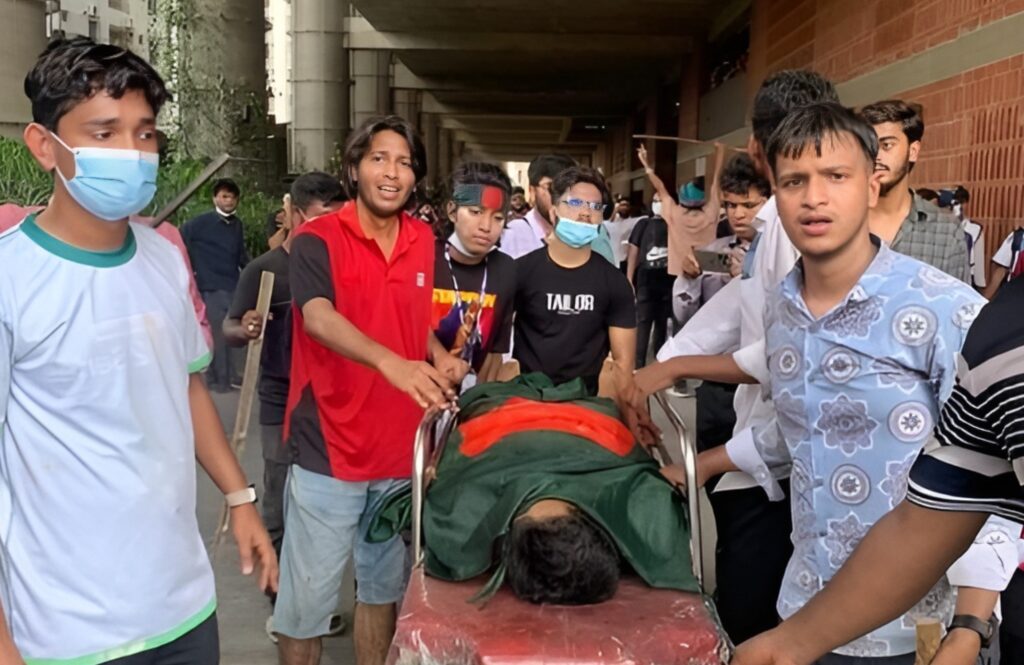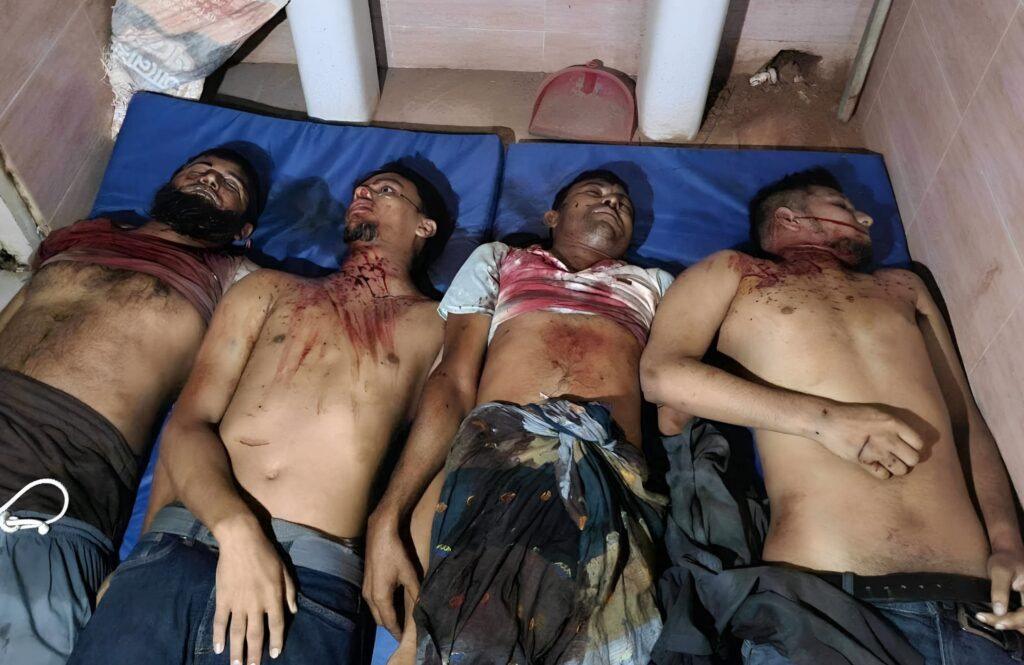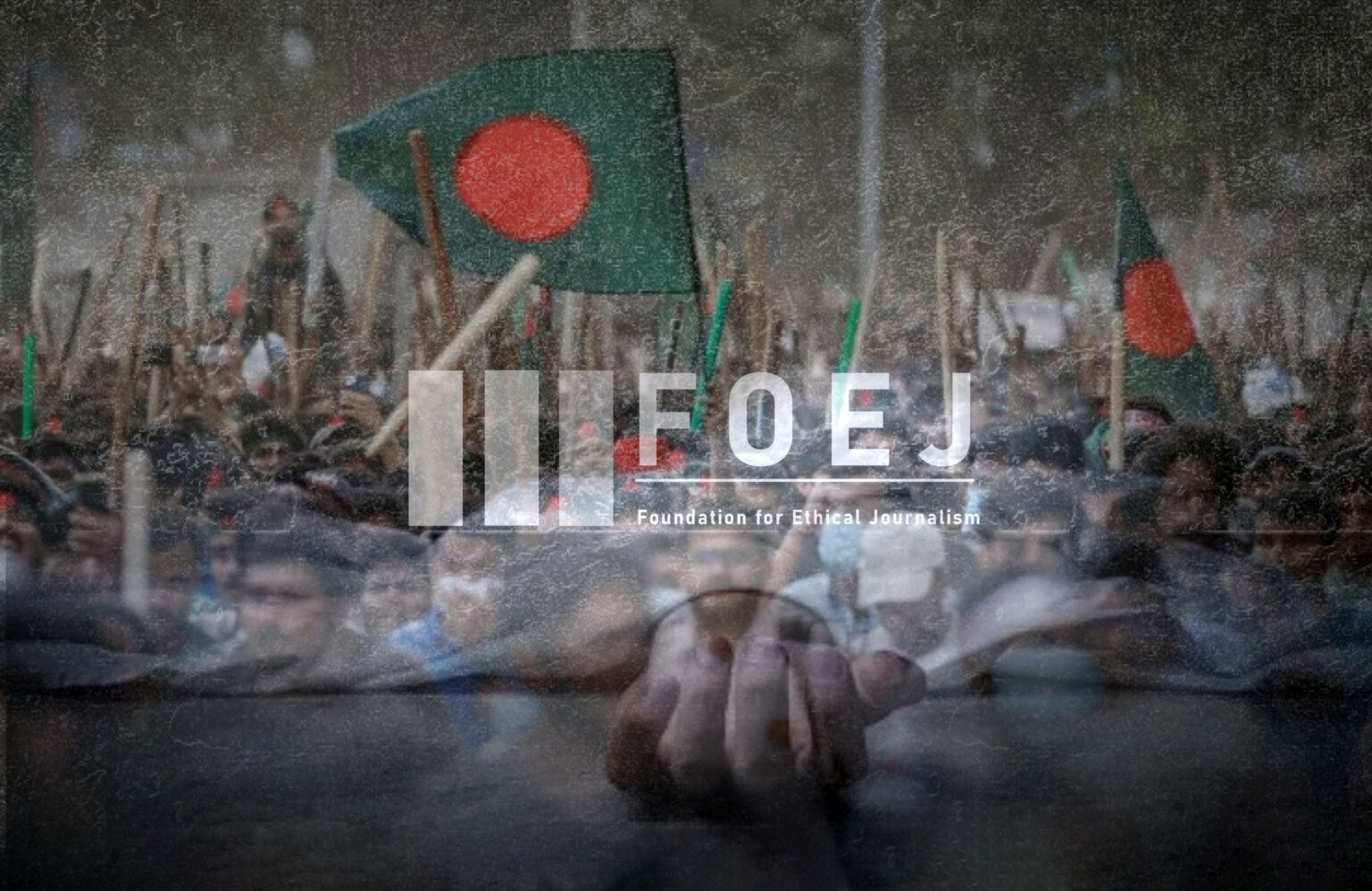Bangladesh is witnessing nationwide and escalating student protests against the government’s job quota system. The protest erupted after the country’s High Court reinstated a 30% quota for government jobs reserved for families of veterans of the 1971 Liberation War. This quota system had previously been abolished in 2018 following prior student protests.

The current protesters, primarily university students, are demanding the complete removal of the quota system, arguing that it is discriminatory and limits merit-based hiring. Many students have been killed in clashes with police, who used tear gas, rubber bullets, and baton charges on the protestors.
What is the Job Quota?
Until 2018, Bangladesh had a job quota system that allocated over half of government jobs to various groups, including women, underdeveloped districts, indigenous communities, and the disabled. However, most of these quotas were abolished in 2018 following previous student protests, with only the 5% allocation for indigenous groups and 1% for the disabled remaining.
The recent High Court decision to bring back the 30% quota for freedom fighter families has reignited widespread protests, with students protesting against the system and claiming that it limits meritocracy in public sector hiring. They demand the complete removal of the quota system, except for the indigenous and disabled allocations. The protesters also claim the quota unfairly benefits supporters of Prime Minister Sheikh Hasina’s ruling party, as many recipients are from families involved in the independence movement.
How Did the Indian Advisory React?
Amidst the ongoing unrest in Bangladesh over the current job quota system, Indian citizens in Bangladesh have been critically advised to avoid travel and minimise their movement outside their premises.

“In view of the ongoing situation in Bangladesh, the Indian community members and the Indian students residing in Bangladesh are advised to avoid travel and minimise their movement outside their living premises,” the Indian High Commission in Dhaka said in an advisory.
According to the details, Bangladesh students vowed on Thursday to continue protests across the nation against civil service hiring rules, rebuking the statement of Prime Minister Sheikh Hasina for pledging justice for six people killed in the demonstrations.
According to media reports, four of the deceased were students, while the other two were small traders. The fatalities included two people in Dhaka, three in the southeastern port city of Chattogram, and one in northwestern Rangpur. The first casualty occurred on Tuesday when a second-year student from Rangpur University was shot dead by police during a protest on the university campus.
“We will go ahead with our plans for a complete shutdown… All establishments will remain closed,” protest coordinator Nahid Islam said and Reuters reported.
“Only hospitals and emergency services will remain operational, with ambulance services being the sole permitted transport.”
The Indian advisory urged for the need for heightened caution and minisining movement outside of their homes for safety. It stressed that Indian citizens who need urgent help are advised to reach out to the High Commission using the 24-hour emergency contact numbers provided.
The emergency numbers are as follows:
High Commission of India, Dhaka +880-1937400591 (also on WhatsApp)
Assistant High Commission of India, Chittagong, +880-1814654797 or +880-1814654799 (also on WhatsApp)
Assistant High Commission of India, Rajshahi +880-1788148696 (also on WhatsApp)
Assistant High Commission of India, Sylhet +880-1313076411 (also on WhatsApp)
Assistant High Commission of India, Khulna +880-1812817799 (also on WhatsApp)
Bangladesh Shuts down Mobile Internet for ’Security’
Bangladesh ordered a nationwide shutdown of its internet network on Thursday following student protests that have resulted in at least six deaths. Junior Telecommunications Minister Zunaid Ahmed Palak confirmed the move, citing the need to “ensure the security of citizens.”

Protests escalated after clashes on Dhaka University’s campus on Monday, with demonstrators declaring a nationwide shutdown in response to continued attacks by security officials.
“They are Attacking every university”
On talking to FoEJ Media, Rushda (name changed) said that students were offering Janaza Namaz for the deceased students when police attacked with tear gas. She further revealed that the police are attacking every university. After that, the university board declared to shut down all institutes until further notice and “forced” students to leave the hall to stop the protest.

“They are attacking every university; students were performing Janaza namaz when police attacked with bombs and tear gas,” she said.
“Feeling of Frustration, Helplessness, and Anger”
A student from the University in Sylhet who wishes to maintain anonymity told FoEJ that the movement is taking a significant toll on the mental health of students. She further said that this is causing a hindrance in their daily lifestyle, and the students don’t know how long this protest will last as they have not come to any conclusion till now.
“Feelings of frustration, helplessness, and anger are there; we don’t know how long this will continue,” she said.
“The pressure is intense and negatively affecting our studies,” she added.
She further revealed that more than 800 people have been injured as the violence keeps escalating.
What locals have to say:
The Bangladeshi media reportedly said that 10 people have been killed this week, but the locals told FoEJ Media that 21 students have been killed in total, including a 7th grader school student.
The data provided by the locals to FoEJ Media includes 1 student from MIST, 3 from AIUB, 5 from IUB, 1 from IUT, 3 from Northern University, 2 from Eastern University, 1 from Madaripur Government University, 1 from Dhaka Imperial College, 1 from Uttara University, 1 from DRMC, and the other was a school student from grade seven.
“Deeply Regretted”, Sheikh Hasina
In a public address on Wednesday, Bangladesh Prime Minister Sheikh Hasina said she “deeply regretted” the casualties in the violence over student protests and said that a judicial inquiry committee will be formed. She further asked protestors to have faith in the country’s apex court. “I believe our students will get justice (in the apex court). They will not be disappointed,” she said.
According to media reports, four of the deceased were students, while the other two were small traders. The fatalities included two people in Dhaka, three in the southeastern port city of Chattogram, and one in northwestern Rangpur. The first casualty occurred on Tuesday when a second-year student from Rangpur University was shot dead by police during a protest on the university campus.









